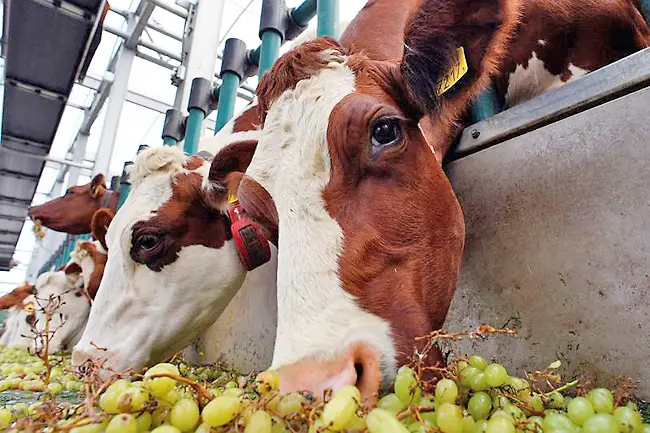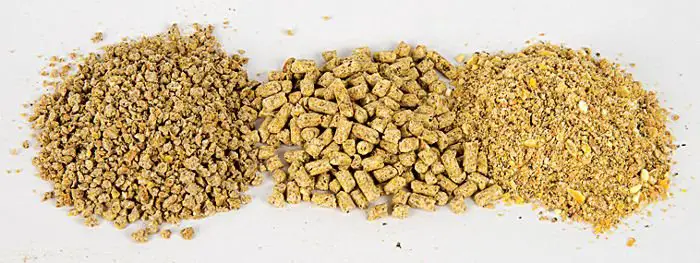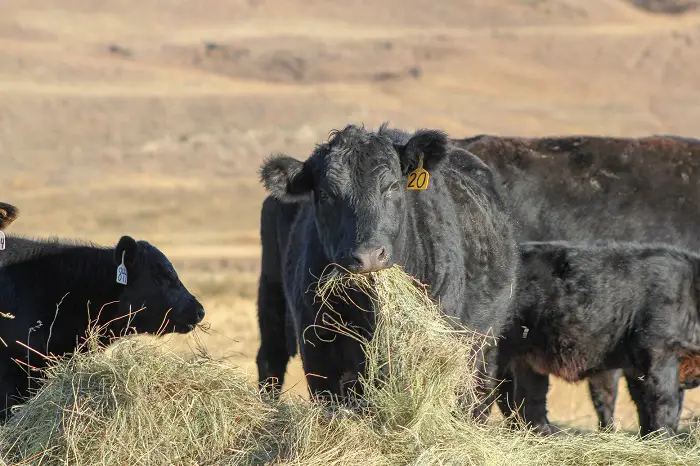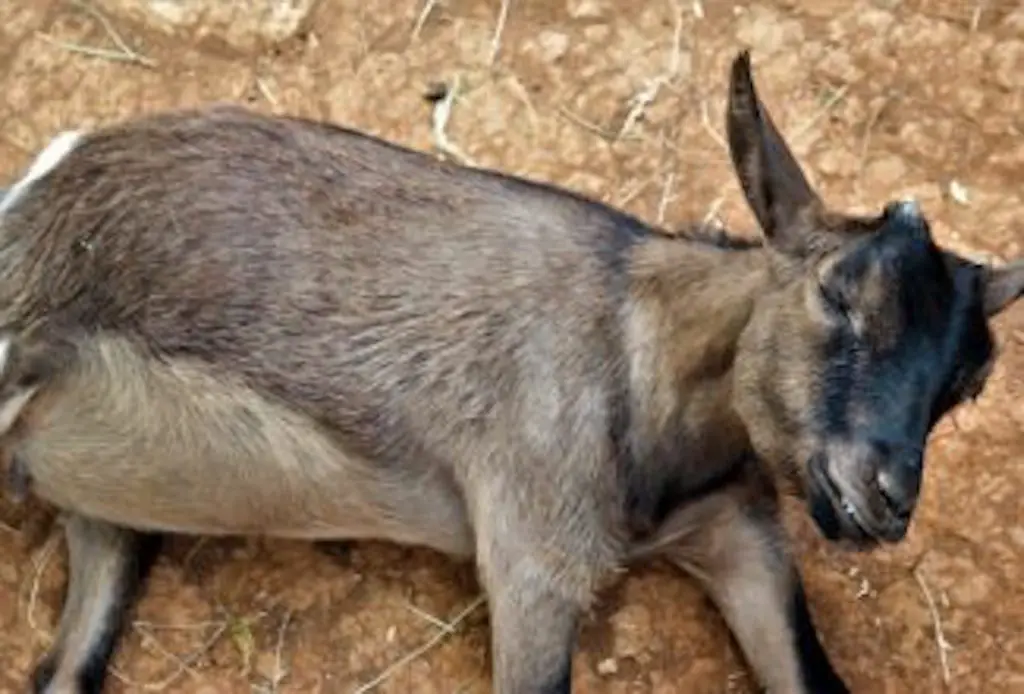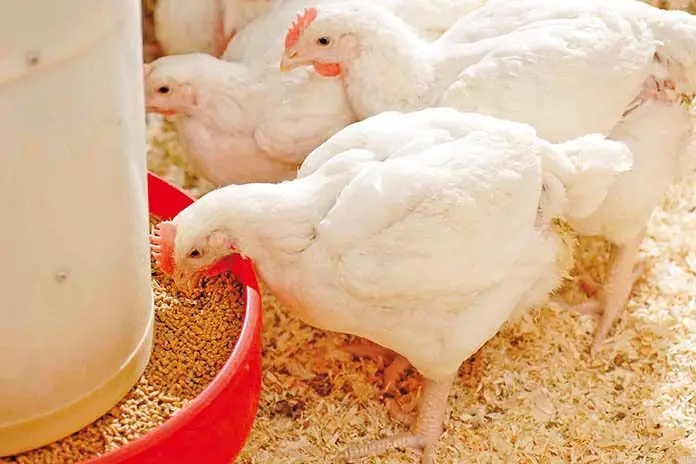The truth is that grapes are a very expensive food (fruit) but you be thinking of using grapes as a feed supplement for your cows so you wonder to yourself whether or not cows can eat grapes. Well, of course they can. Amongst many other types of sweet, tasty and nutrient-rich foods, cows can certainly eat grapes and here’s more on why that is possible.
Contents
Why Cows Can Eat Grapes
Grapes are a harbor for many nutrients (vitamins and minerals) that a cow needs in order to produce a lot of good quality beef and milk (if you happen to have some diary cows.) But as the old English adage goes; “all things in moderation”, because like most feed or food stuffs, if the cows are fed the grapes in excess they may end up with a disintended (bloated) stomach that would cause them some diarrhea or very serious stomach cramps. Amongst may of the nutrients cows need to develop, these are some of the most recognized in grapes; protein, fat, fiber, copper, vitamin K, potassium, vitamin C and manganese. All of which play a vital role in maintaining and very well producing a healthy and happy cow (because the grapes are tasty too.)
How The Nutrients In Grapes Benefit Your Cows
It would take a lot more than a bunch of grapes to meet the nutritional needs of a huge animal like a cow that is why it is recommended to use grapes as an addition to the castle’s feed, not as an overall feed. Grapes are very expensive and should (if ever) be given to the cows as a treat. With that being said, here’s how nutrients in grapes help with the development of your cows.
The Protein In Grapes
Protein should be an important part of a cow’s diet because it is responsible for the production and enrichment of milk. The protein that will then be contained in this milk is very important for the promotion of muscle growth in young calves which are very important for movement. An 11 pound bunch of grapes will give you 33.1 grams of protein. This would not be too much if you have plenty of cows ranging from five to perhaps seven. Protein is a vital nutrient in growing and maintaining the muscles of cows. And it is readily available in grapes.
The Fat In Grapes
Fat is important for cows, especially natural fat like the one contained in grapes. This not only makes your cow appear bigger but it (the fat) also serves as a source of energy for the cow’s.
The Fiber In Grapes
This is by far one of the most crucial nutrients for the cows, on this list. A cow’s stomach consists of four chambers (you can already imagine what a complex organ it is) and is the power station for all of the processes that happen in and on the cow’s body. So it needs to be kept in a good and healthy condition in order to function well. The fiber in grapes allows for this to happen. Fiber is very important for most mammals’ digestive systems. It keeps the gut lining clear and healthy and aids in the digestion of other food stuffs which eventually leads to the overall growth of the cows.
- However this is why the old adage needs to be applied. Too much fiber (which a bunch of grapes will have) can lead to very loose stools for the cows (or diarrhea.) You should only feed a decent amount of grapes to your cows (if ever.)
The Copper In Grapes
When your cows are grazing around your field or farm they have most likely consumed copper, and in small amounts this is a very good nutrient. It helps keep the color of the cows’ skin as it is and more importantly copper acts like an antibiotic to combat any bacterial or viral infections that may fall upon the cows. It is also available (in very small amounts) in grapes, which adds to the benefits these wonderful fruits have.
The Vitamin K In Grapes
This vitamin is essential for the health of the livers of the cows. The liver is what stores and distributes the aforementioned nutrients to other parts of the cow’s body. It is also responsible for destroying toxins which the cows may consume without your knowledge. A healthy liver helps keep the cows’ entire body healthy and functional as well.
The Potassium In Grapes
Potassium is also a very essential nutrient for cows, particularly diary cows. Potassium helps to strengthen the muscles (which contract and relax to aid movement) and lessen depression in cows and it is readily available in grapes. Diary cows need the potassium from grapes because once they start breast feeding their calves, most of these essential nutrients that they need get lost in the milk and are then absorbed by the calves. Cows need this nutrient to also keep most of the nutrients from diffusing into the milk.
The Vitamin C In Grapes
Vitamin C helps amplify the immune systems of cows by helping or enhancing the recovery of the cows from a condition known as mastitis; this is characterized by an inflammation of the breast or mammary glands of a diary cow. Vitamin C also helps prevent diarrhea in calves. But again, grapes should be taken in small amounts by the cows.
The Manganese In Grapes
This nutrient is essential for the overall growth of the cows. Which means it helps develop bones, muscles, tissue, etcetera. It is also one of the many readily available nutrients available in grapes.
Conclusion
You would assume (from their sheer size) that grapes offer little to no help in developing the structure of a cow, but they do and in major ways. The most recommended grapes are purple grapes (as opposed to green ones) because purple grapes have (according to scientific study and research) more antioxidant properties in them and overall better taste that their green colored cousins. Whatever the case, grapes can be eaten and enjoyed by cows as a treat.
